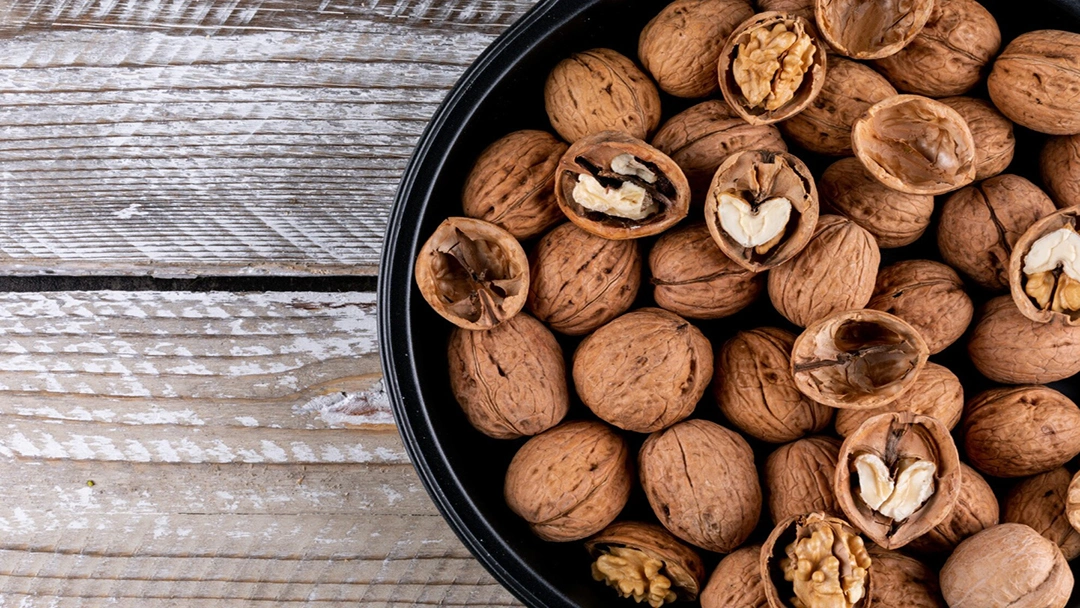The Benefits of Turmeric on a Carnivore Diet
Let’s take a look at the main benefits of turmeric on a Carnivore diet.
[cta-meal-plan]
Anti-Inflammatory Effects
Curcumin, the active compound in turmeric, provides various anti-inflammatory properties. Inflammation can cause various chronic health conditions, so consuming turmeric to reduce inflammation can improve our overall health. In addition to anti-inflammatory effects, turmeric has neuroprotective, anticancer, hepatoprotective, and cardioprotective effects [1].
Antioxidant Effects
Curcumin is also a potent antioxidant, which protects cells from oxidative damage caused by free radicals. It also helps managing oxidative and inflammatory conditions [2].
Joint Health
Turmeric can alleviate symptoms of joint pain or arthritis as it has anti-inflammatory properties. It is an essential positive point for Carnivore dieters who are concerned about joint health. It can lower exercise-induced inflammation and muscle soreness, boosting recovery and performance in active people. It can also have positive effects on alleviating arthritis symptoms [3].
Digestive Health
Turmeric can help indigestion and bloating, which can cause problems on a high-meat diet. Additionally, it plays an important role in improving metabolic syndrome and hyperlipidemia.
[cta-gocarnivore-plans]
Mood and Mental Health
Curcumin can positively affect mood and mental health. It can also help decrease depression and anxiety [4].
Liver Health
Turmeric has detoxification effects, which help clean the liver and reduce liver inflammation.
Dr. Tieraona Low Dog, Author of "Healthy at Home":
"Turmeric has been used for centuries in traditional medicine systems like Ayurveda for its medicinal properties. Modern research continues to uncover its diverse health benefits."
Cardiovascular Health
Since Carnivore dieters consume high amounts of fat, they may be at risk of heart disease. Studies indicate that curcumin can positively impact cardiovascular health by improving factors like blood pressure and reducing the risk of heart disease [5].
[cta-meetings]
Turmeric Nutrition
Here is the nutritional content of turmeric per 1 tablespoon (about 6 grams) of ground turmeric:
- Calories: 20 cal
- Carbohydrates: 4.4 g
- Dietary Fiber: 1.4 g
- Sugars: 0.2 g
- Protein: 0.5 g
- Fat: 0.7 g
- Vitamin C: 1.7 mg (3% of the daily value)
- Vitamin B6: 0.1 mg (6% of the daily value)
- Iron: 1.8 mg (10% of the daily value)
- Potassium: 170 mg (5% of the daily value)
- Manganese: 0.2 mg (8% of the daily value)
- Curcumin: 2-5% of the spice by weight
Learn More: Can You Eat Pepper on a Carnivore Diet? What About Pepper Oil?
Does Turmeric Break Ketosis?
Ketosis is a metabolic state where the body shifts to burning fat instead of carbohydrates to provide energy. The carbohydrate intake must be very low to induce and maintain ketosis. That’s why the Carnivore diet aims to minimize carbs.
[cta-meal-plan]
Turmeric itself, in its natural form as a spice, is very low in carbohydrates and sugar, so it is unlikely to significantly impact ketosis when consumed in moderate amounts.
But remember that if you use turmeric together with other ingredients, its carb levels may change and negatively affect ketosis.
For example, if you're using a curry powder or spice blend that contains turmeric along with other seasonings or additives, those other ingredients may add high amounts of carbohydrates to your meal.
Also, some turmeric supplements, especially those in capsule form, may contain fillers or additives that could have more carbohydrates, so always check the label on turmeric supplements.
Learn More: Can You Eat Olives on a Carnivore Diet? Is It Healthy?
Turmeric Reduces Inflammation
A 2009 study published in the journal of Alternative Medicine Review showed that turmeric contains curcumin, a bioactive compound known for its potent anti-inflammatory effects, benefiting individuals with conditions like arthritis and metabolic syndrome.
Is Turmeric Allowed in Fasting?
Turmeric is generally allowed during fasting, whether intermittent fasting or other forms. However, consider the following points.
- Caloric Content: Turmeric doesn’t contain high levels of calories, and it wouldn’t break a fast. However, consuming turmeric mixed with other ingredients like milk or sweeteners can change its calorie levels and break the fast (the calorie level depends on the kind of fast).
- Turmeric Supplements: When consuming turmeric capsules, check the label for any added ingredients that can increase calorie levels.
- Fasting Goals: The specific goals you follow in fasting can affect the use of turmeric. Whether you’re fasting for religious or health reasons, specialists in each area can help you with the use of turmeric.
- Health Benefits: Some individuals use turmeric during fasting to gain benefits like anti-inflammatory and antioxidant properties. Turmeric can be added to water, herbal tea, or broth to improve the flavor without adding significant calories.
[cta-gocarnivore-plans]
How Do You Use Turmeric on a Ketogenic Diet?
The Ketogenic (Keto) diet is a low-carb, high-protein, and high-fat dietary approach, aiming to induce ketosis and lead to weight loss by minimizing carb intake and maximizing fat and protein.
Turmeric contains low levels of carbohydrates and can bring flavor and health benefits to your keto-friendly meals. You can use turmeric on a Ketogenic diet in many ways, including the following.
- Turmeric Seasoning: Use turmeric powder to spice up meat, poultry, or seafood dishes. You can sprinkle it on before cooking or grilling to add flavor and color.
- Turmeric Golden Milk: Make a keto-friendly version of turmeric golden milk. Mix coconut milk (or other keto-friendly alternatives) with turmeric, a pinch of black pepper (to increase the absorption of curcumin), and a keto-friendly sweetener like stevia or erythritol. Heat the mixture and enjoy.
- Turmeric Sauces and Dressings: Create keto-friendly sauces and dressings using turmeric. You can make a turmeric-infused cream sauce with heavy cream and turmeric for chicken or cauliflower dishes. For salad dressings, mix turmeric with olive oil, vinegar, and keto-friendly herbs and spices.
- Turmeric Eggs: You can add turmeric to scrambled eggs or omelets.
- Turmeric Soups: Use turmeric as a seasoning in keto-friendly soups and stews.
- Turmeric Supplements: If you prefer to gin the turmeric benefits but don’t like its taste, you can take turmeric supplements without added sugars or carbohydrates.
- Turmeric Marinades: Create turmeric-based marinades for meats or vegetables. You can mix turmeric with olive oil, herbs, and spices and marinate your protein or vegetables before grilling or roasting.
- Turmeric in Keto-Friendly Smoothies: Add a small pinch of turmeric powder to your smoothie and enjoy.
Learn More: Can You Eat Avocado on a Carnivore Diet? What About Avocado Oil?
Turmeric Improves Cellular Health
A 2007 study published in the journal of Advances in Experimental Medicine and Biology indicated that
Curcumin in turmeric exhibits strong antioxidant activity, which can help neutralize harmful free radicals and protect against oxidative stress-related damage to cells and tissues.
Does Turmeric Activate Autophagy?
Turmeric, with its active compound curcumin, can boost autophagy. What is autophagy, and why does it matter? It is a cellular cleaning process to degrade and recycle damaged or dysfunctional cellular components.
[cta-meetings]
Autophagy is important because it helps maintain cellular health and brings various health benefits, such as longevity and the prevention of certain diseases.
Although more research needs to be done to confirm the positive effects of turmeric on autophagy, recent studies indicate the following points.
- Anti-Inflammatory Properties: Curcumin, the active component in turmeric, has anti-inflammatory and antioxidant properties. Chronic inflammation can disrupt autophagy, so reducing inflammation indirectly supports autophagy.
- Molecular Pathways: Some studies have suggested that curcumin may activate some molecular pathways related to autophagy. For example, it may activate AMP-activated protein kinase (AMPK), stimulating autophagy.
Can I Eat Turmeric on an Empty Stomach?
Yes, you can consume turmeric on an empty stomach. Actually, consuming turmeric first thing in the morning can have various health benefits, including better absorption of curcumin.
You can consume turmeric on an empty stomach in different ways, including the following.
- Turmeric Water: Mix some turmeric powder (1/4 to 1/2 tsp) with warm water and drink it on an empty stomach. You can add a pinch of black pepper to increase the absorption of curcumin.
- Turmeric Tea: Brew a cup of turmeric tea by steeping turmeric powder or grated fresh turmeric root in hot water and enjoy.
- Turmeric Supplements: Simply take turmeric supplements in capsule or tablet form with a glass of water on an empty stomach.
Learn More: Can You Eat Onions on a Carnivore Diet? [Expert Guide]
[cta-meal-plan]
Summary
As we read in this article, the answer to the question, “Can I use turmeric on a Carnivore diet?” is yes. Turmeric is low in carbs and calories, so it won’t make a significant disruption in the flow of a Carnivore diet.
However, you need to ensure you won’t overeat it to avoid affecting the diet results. Turmeric can have various health benefits on a Carnivore diet if used adequately.






























